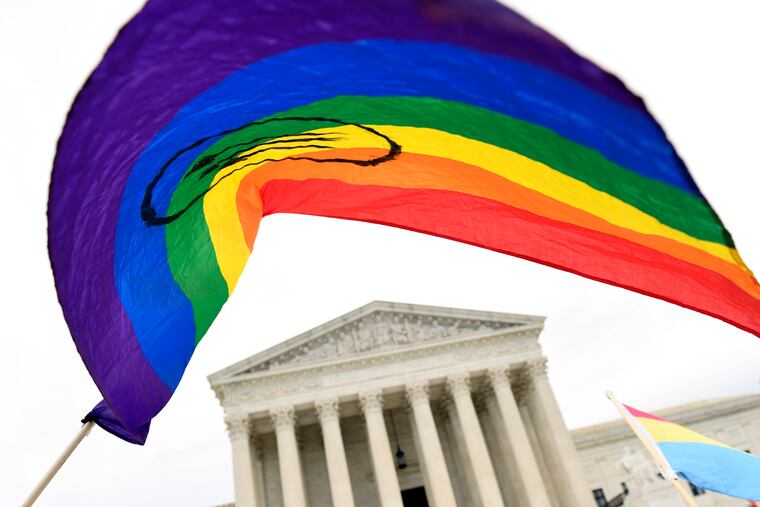There are fair compromises on LGBTQ protections — but the Equality Act falls short | Opinion
The Equality Act would put religious business owners, charities, and hospitals in impossible positions.

A recent Inquirer opinion piece correctly stated “it’s the job of Congress to pass legislation that protects all of us.” As a gay man who has worked on the issue of nondiscrimination in multiple states, I couldn’t agree more. Unfortunately, the so-called Equality Act — which that piece was supporting — fails to protect many Americans, and carries an enormous moral risk for LGBTQ Americans like myself: that we become the bullies we decried all along.
A significant majority of Americans, myself included, support enhanced protections for my community, including the right to work and live without fear of being “outed” and fired, which is a reality many of us face in more culturally conservative areas of Pennsylvania and elsewhere. But the Equality Act reaches much further; as written, it would put religious business owners, charities, and hospitals in impossible positions, and empower the federal government to play locker room police when many decisions are best made locally.
Our nation was founded on religious liberty — that’s why it’s in the First Amendment of our Bill of Rights. We must allow room to live for people of good conscience who will happily serve gay and transgender customers every day, but do not want to participate in events of specific significance, such as weddings and celebrations to mark gender transition. (A conservative baker in Colorado recently refused to sell a custom “transition cake,” which sparked controversy around this issue.)
» READ MORE: Sen. Toomey’s historic opportunity to protect LGBTQ elders | Opinion
The Equality Act allows for no such room. In fact, by expressly prohibiting litigants from using the Religious Freedom Restoration Act as a defense to claims brought under the Equality Act, it would make it nearly impossible for businesses owned by Orthodox Jews, Muslims, Christians, or others with deeply held religious beliefs to defend themselves should they be sued for refusing service on those grounds. Again, these are people who, for the most part, will happily serve gay customers every day — but do not want to participate in certain ceremonies because of their own conscience.
We have come a long way as gay and transgender Americans, and yet there are protections that many of us do still need. I grew up closeted even in a liberal area. In only a few decades, the situation for those like me has changed entirely. Not only is the LGBTQ community widely embraced by much of American society, but we wield enormous cultural clout both locally and nationally. As the power dynamics have shifted, we must resist the urge to become the hunters instead of the hunted and let those religious bakers keep on baking.
The heavy-handed approach of the Equality Act will not further equality in America. As written, it should be a no-go — and if most gay and transgender people knew the details, I feel they’d agree.
» READ MORE: Hindu Americans can lead in embracing the Equality Act | Opinion
Further, we’ve seen that it is possible for elected officials to unite in support of pragmatism, and to support the LGBTQ community from the right. That often entails significant political risk. The aforementioned opinion piece singled out Republican Sen. Pat Toomey but failed to acknowledge that he has been a leader in the Republican Party in defending LGBTQ Americans and creating a more equal society overall. Sen. Toomey was one of only a handful of Republicans who helped end “Don’t Ask, Don’t Tell,” bringing thousands of gay and lesbian military personnel out of the shadows. He was also one of nine Republican senators to support the Employment Non-Discrimination Act, which banned workplace discrimination based on sexual orientation.
That is not to mention Sen. Toomey’s pragmatism on other issues, such as attempting to find bipartisan consensus on gun background check laws, which have earned him many arrows and not enough accolades.
The cause of equality and nondiscrimination is a just one. The actual policies we enshrine into law, more important still. Reasonable people will support reasonable solutions. The Equality Act is not reasonable. It’s a wolf in sheep’s clothing that would set back the cause of equality for an enormous number of Americans — and risk turning gay and trans people into the bullies we always said we decried.
Albert Eisenberg is a Philadelphia-based political consultant and is a founder of Broad + Liberty. He has consulted extensively on diversity and LGBTQ issues from the right.